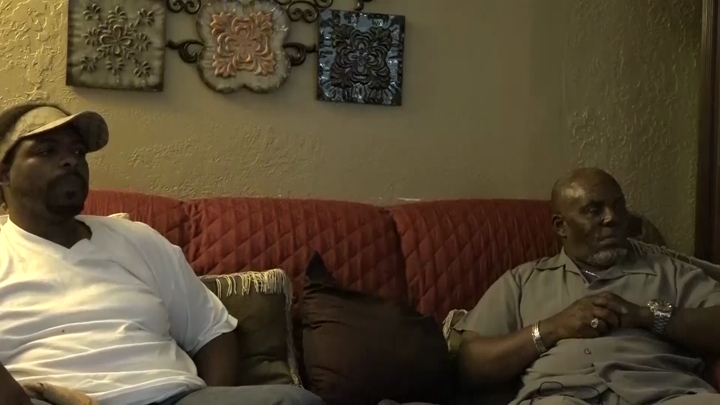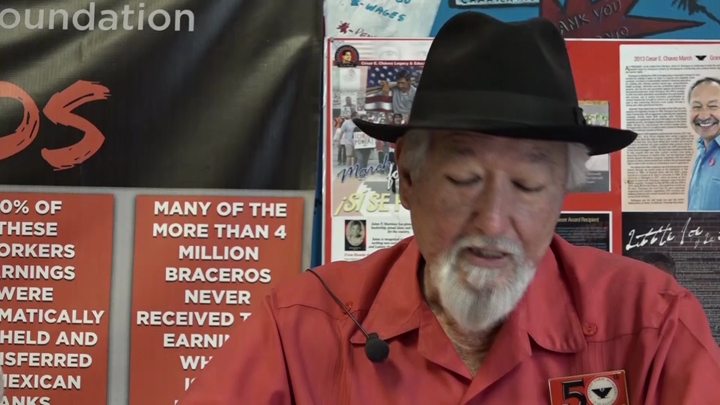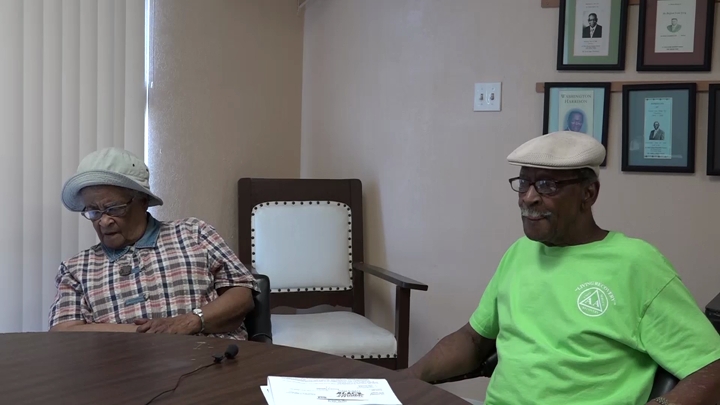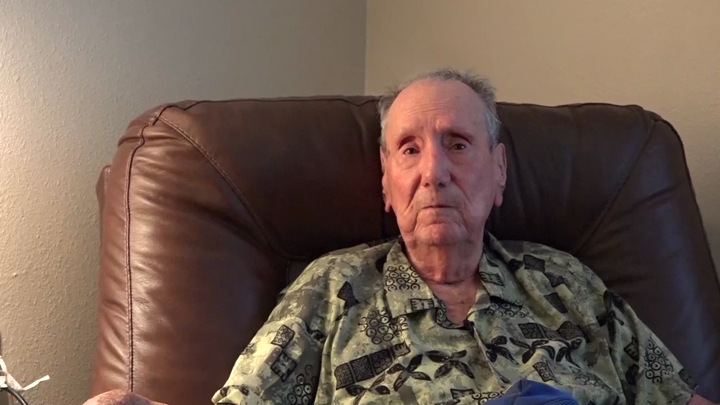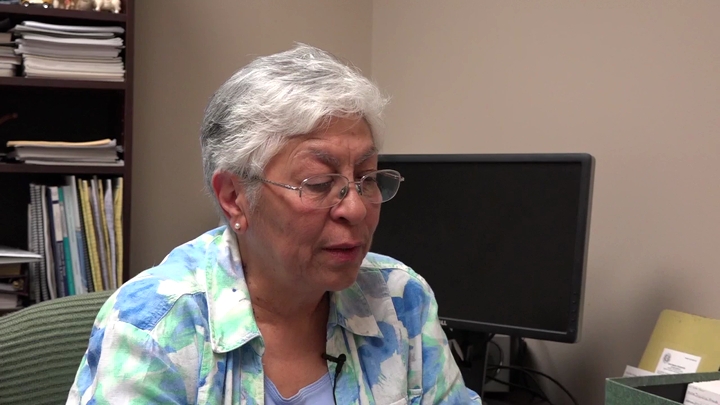Lee / Black Power and Work, Part One
sign up or sign in to add/edit transcript
Interviewer: So that’s—we often hear about the pipeline, the school-to-prison pipeline that exists today. How much did you in particular see that as a reality? Proctor: Very—all the time. I mean, one day we would be in school with each other, the next day I may not see him. He’s locked up. I have classmates that I started in elementary school with and made it fifth, sixth grade and I didn’t see them anymore after that. They were locked up. It’s very easy—they say it’s easy to get in trouble, hard to get out of. I take it—I say this, me personally, my opinion, it’s easy for a black man to get in trouble and hard for them to get out of. Why I say that’s a true statement, I’ve seen it time and time again. I’ve seen nothing to show me any different, even what’s going on in the world today. Interviewer: So, you guys were in school? Any other big events or things that made an impact on you before you graduated? Lee: I can’t think of anything that made an impact on me. Interviewer: Alright, so, what did you guys do after you graduated from high school? Lee: Afterwards? I worked. (laughs) Interviewer: I believe that’s one of the things that’s instilled in a young black man from day one. If you’re going to have anything or you want anything, you’re going to have to work hard for it. Lee: I worked, and I got married at a young age and I worked some more. Interviewer: Who did you work for? Lee: I worked for J.T. Thomas Highline. You know, those are little mediocre jobs and afterwards in the seventies, things started opening up. I went to work at the Woodland and I went to work for pipe—some paper company, newspaper company in Conroe and then I left there and went to Fort Worth Pipe and I left Fort Worth Pipe and went to Orange Corning. You know, things—you just start going up the ladder because at that time you made it to the seventies then. You know, in the seventies, that was the black man’s dream then cause he could make money and he could buy what he wanted to buy and live where he wanted to live at that time. That’s in the seventies when most black people, they mostly flourished. Interviewer: By the late sixties and into the seventies, black power is starting to make an impact. How influential was black power on your life? Lee: Black power? Interviewer: So, this idea, kind of coming out of the civil rights movement of—not necessarily Black Panthers, but the promotion of African American culture— Lee: Well, I studied in the Panther Party when I was coming up. But there it was just—and then I studied with the Muslims when I was coming up, but all that was just something that I did routinely. But it wasn’t—I mean, it was good upstate and in the bigger cities but down here, in the small countries, place like this, it wasn’t happening. Interviewer: So, you read up on like the Nation of Islam and that sort of thing? Lee: Well I was attending a lot of meetings and I went to a lot of temple. I went in Houston. I was a part of it. Interviewer: How did it impact how you viewed the world? Lee: It helped me to see myself as a black man. That my life mattered. That I was somebody and that I could be anybody I wanted to be and that as a black man, I could have what I wanted to have if I focus upon the right thing. That black life does matter. Interviewer: What have been some of those ideas that have impacted you? I know you’re coming in a little bit later, but how have some of these different ideologies—if they’ve impacted you, how much? Proctor: Well, church has been my main impact. My dad was a pastor at one time. Like I say, I have uncles, my grandfather was a pastor, so I get most of my inspiration from the church. I talk to my pastor, Reverend ??? a lot who gives me a lot of good information. I try to stay as close to the church as possible and I know if—I feel like that’s my safe haven. That’s where I turn to and that’s what I was always taught to turn to. Interviewer: And your work? You said you went to work after high school? Proctor: I worked during high school, well before high school. It wasn’t no child labor laws back then. (laughs) Pumped water from ten years old all the way up until I was twenty-one when I got my Class A CDL License and started driving trucks. So, it’s always been in the wood industry. Interviewer: This is for both of you. On the job, have you encountered any kind of racial discrimination or barriers to— Lee: Yeah. Mediocre jobs you were passed over for promotions and stuff like that. You never get—but, until you got, see like in Orange. When I got out in Orange, they had a union. I got in the union and the union fought for you. Which I had some problems out there at one time because they were fixing to pass me over for a promotion and give it to another young lady, a Caucasian lady, but I had more time on the job. I wound up with the job because one of the stewards came through and heard them, how they was talking to me that day and they was fixing to blackball me and take the job. When she heard that, the union went to bat and I got the job. Interviewer: So, were you very active in unions? Lee: Oh yeah. Interviewer: Do you remember which one it was? Lee: AFL-CIO. I’ll never forget. United Paper Workers. Interviewer: Did you participate in any larger union activities? Any strikes or anything like that? Lee: No. No.


